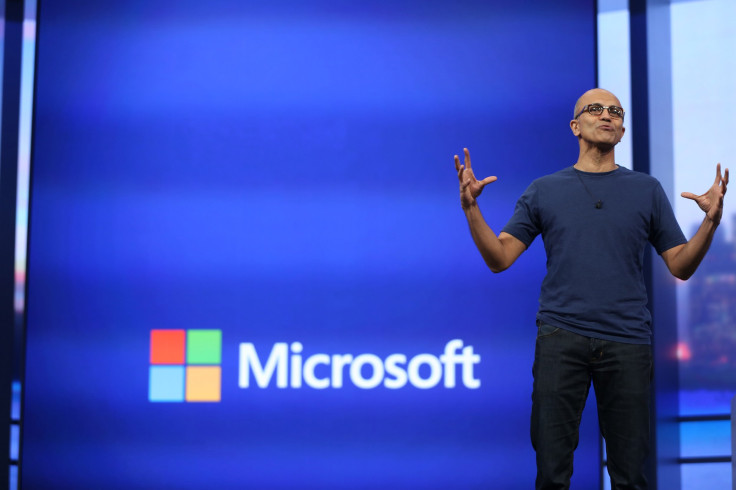Free MS Office: CEO Nadella’s Radical Plan Shows Microsoft Officially Over Steve Ballmer

Microsoft saw a number of sea changes in the tech industry as it passed from the Bill Gates era in the 1990s to Steve Ballmer’s recently ended reign. It transitioned from a company obsessed with the PC as the ultimate device to one that, grudgingly and belatedly, accepted computing’s move to networks and then the Internet before, ultimately, landing in the cloud. But one constant always held — software represented Microsoft’s crown jewels, and no one was getting it for free.
That all changed Thursday. Microsoft announced that certain mobile versions of its prized Office software, which along with Windows accounts for more than half of its annual revenue, will be made available free of charge. And in an even more shocking sign that the old rules don’t apply under new CEO Satya Nadella, the company indicated that the newest, touch-friendliest versions of Office will hit Android and iOS devices before they show up on still-in-the-works Windows 10 products.
The plan is “a major step to bring Office to everyone,” said Microsoft VP John Case in a blog post.
iPhone, iPad and Android users will have access to well-known productivity applications like Word, Excel and PowerPoint for free through Microsoft’s Office 365 cloud service. The free versions won’t have all the bells and whistles. Advanced features like variable printing and revision tracking will be exclusive to versions accessed through an annual Office 365 subscription that can cost more than $100. But they will rival any of the freebies from Google, with its basic Docs package, and Apple, with its iWorks for iOS tools.
Microsoft’s immediate hope is to lure users of competing mobile packages to the free version of Office, then convert them to paying subscribers. The plan could pay off big. Apple and Android devices accounted for more than 95 percent of the more than 1 billion smartphones that shipped worldwide in 2013, according to IDC. Also-rans like BlackBerry and Microsoft’s own Windows Phone fought for the leftovers.
More significantly, the plan reflects a strategic about-face that Nadella has been driving since he took the corner office in February. While Apple is known for its Infinite Loop, Microsoft for the past decade has been chastised for its infamously closed loop. Gates and Ballmer drove a product strategy that called for jamming as much pricey Microsoft software as possible onto hardware supplied by a tightly controlled ecosystem of suppliers like Intel, Dell, and Hewlett-Packard.
The strategy helped Microsoft secure a near (or in the eyes of the Justice Department, actual) monopoly on the PC market, but it wasn’t sufficiently flexible to adapt to sudden market shifts —like the rise of mobile devices that access a diverse set of software and services from the cloud.
Nadella wants to, has to, change course. “Our industry does not respect tradition,” he said in an email sent to employees when he was named CEO. “Our job is to ensure that Microsoft thrives in a mobile and cloud-first world.” He used the phrase again a few paragraphs later, noting that the company’s past accomplishments must be “reimagined” for a “mobile and cloud-first world.”
Months later, in a lengthier missive, Nadella fleshed out his plan for the, wait for it, “mobile-first and cloud-first world” and said “nothing is off the table in how we think about shifting our culture to deliver on this core strategy.”
That, we now know, includes building cooperative relationships with market leaders, even if they’re fierce rivals. “There’s going to be a handful of tech companies that everyone depends on,” analyst Maribel Lopez, of Lopez Research, told the Associated Press. “Microsoft wants to make sure they’re one of them.”
It’s a stark contrast to the course charted by Nadella’s immediate predecessor. Asked at a 2010 financial analysts meeting about how Microsoft planned to respond to the iPad, Ballmer said, in a verbatim quote from the transcript: “Blah, blah, blah, blah.”
© Copyright IBTimes 2024. All rights reserved.












